 Petzlover
Petzlover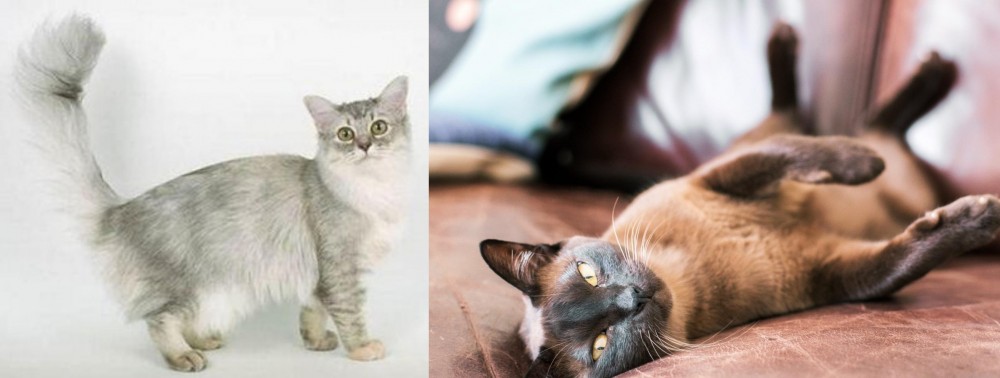 Asian Semi-Longhair is originated from United Kingdom but Burmese is originated from United States. Both Asian Semi-Longhair and Burmese are having almost same weight. Both Asian Semi-Longhair and Burmese has almost same life span. Both Asian Semi-Longhair and Burmese has same litter size. Asian Semi-Longhair requires Moderate Maintenance. But Burmese requires Low Maintenance
Asian Semi-Longhair is originated from United Kingdom but Burmese is originated from United States. Both Asian Semi-Longhair and Burmese are having almost same weight. Both Asian Semi-Longhair and Burmese has almost same life span. Both Asian Semi-Longhair and Burmese has same litter size. Asian Semi-Longhair requires Moderate Maintenance. But Burmese requires Low Maintenance
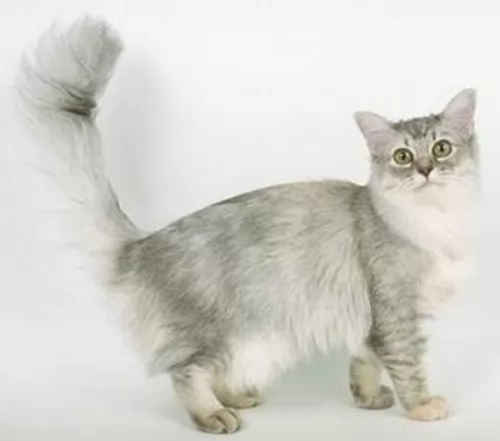 Similar to the Asian Shorthair, the Asian Semi-Longhair with its semi-long fur was developed in the UK in the 1980s and isn’t recognized by any U.S. registries.
Similar to the Asian Shorthair, the Asian Semi-Longhair with its semi-long fur was developed in the UK in the 1980s and isn’t recognized by any U.S. registries.
It is believed that the cat breed goes back to matings between the Chinchilla and Burmilla cats. This cat may not be recognized by any of the U.S. registries but it has recognition in the GCCF.
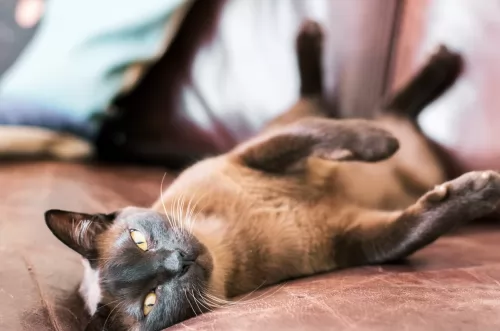 A dark brown cat together with Dr Joseph C. Thompson made their way from Burma to the United States in 1930. Cat fanciers believed that it was a dark-colored Siamese.
A dark brown cat together with Dr Joseph C. Thompson made their way from Burma to the United States in 1930. Cat fanciers believed that it was a dark-colored Siamese.
Dr. Thompson along with other breeders decided to breed the cat and she was the start of the Burmese breed.
Hybrids however, began appearing in the show hall in 1947. This was considered a violation of the show rules of the Cat Fanciers' Association and recognition of the Burmese was withdrawn until 1953. The Burmese Cat Society of America then had to give assurance to the registries that this type of thing would not happen again.
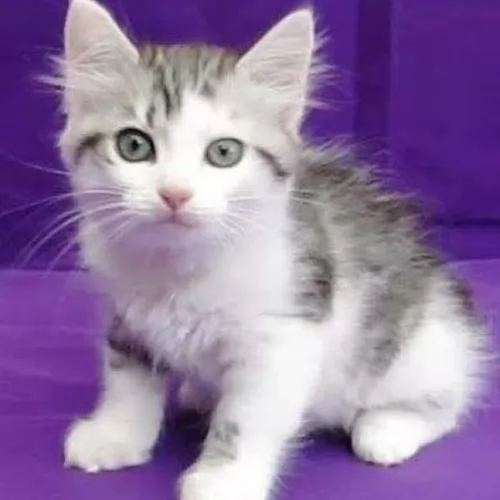 This beautiful cat is medium to large in size and can weigh up to 6 or 7kg. The body is compact, the face and eyes round with a slightly blunt snout. The ears are fairly small and pointed.
This beautiful cat is medium to large in size and can weigh up to 6 or 7kg. The body is compact, the face and eyes round with a slightly blunt snout. The ears are fairly small and pointed.
The luxurious silky coat comes in different colors and patterns such as black, brown, chocolate, blue and lilac, which happen to be the five main colors of this beautiful cat with his shiny green eyes.
The Asia Semi-Longhair is a gentle cat but curious and active. These are cats that become attached to their human owers and don’t like to share their humans with other cats.
They’re very talkative and they are therefore not the best breed to keep in an apartment. It’s also a cat that doesn’t like to be left on its own for long periods of time and will make a friend of children and other pets such as dogs if it means some companionship.
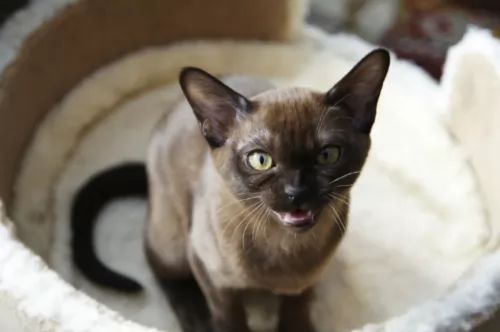 The Burmese is a medium-sized cat - fairly stocky and solid and weighs between 3 and 5kg.
The Burmese is a medium-sized cat - fairly stocky and solid and weighs between 3 and 5kg.
The dense, short coat of the Burmese comes in a variety of colors such as chocolate, cream, sable, red, tortoishell and solid colors too. The color you are most likely to see is sable.
It’s a low shedding cat so his grooming needs are low. The eyes, often a beautiful yellow shade, can be in different shades of yellow really.
Your gorgeous Burmese cat is a curious cat and finds exploring new places a huge adventure. They’re prepared to get on with some other pets in the home, but they may not be happy to welcome all cat breeds. The Burmese don't particularly like sharing their home and his human family with other cats in the home and love to get all the attention for themselves.
Once these cats mature, they do tend to settle down quite a bit and become placid, being a spectator to fun activities rather than a participant.
Still, they love their humans and are more than happy to find a place in the sun and to watch everyone from there.
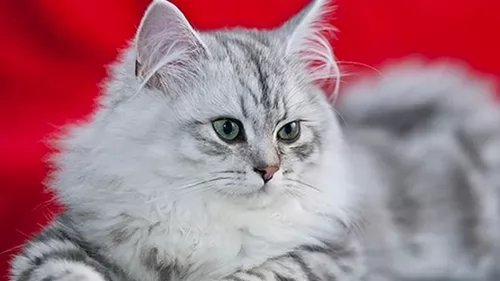 The Asian Semi-longhair is such a sociable, friendly cat and he loves his human family so much that he can’t bear to be separated from them. It is often referred to as being a dependent cat, as it absolutely hates being alone and does not want to be separated from the people he loves.
The Asian Semi-longhair is such a sociable, friendly cat and he loves his human family so much that he can’t bear to be separated from them. It is often referred to as being a dependent cat, as it absolutely hates being alone and does not want to be separated from the people he loves.
It’s not the type of cat to get if you work long hours and there is nobody else at home. It's the kind of cat that also gets on well with kids and dogs.
He is such a playful cat that even a yarn of wool will keep him amused for ages and he loves toys. For so much friendship coming from your feline friend, he deserves plenty of love and attention - after all, he is prepared to give you that.
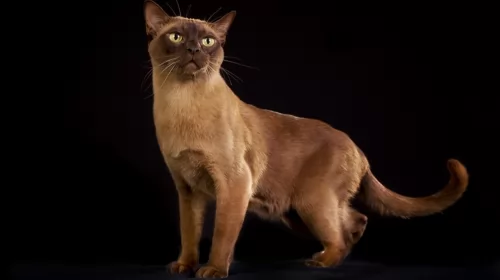 The Burmese cat loves to climb and survey his world from a high perch so don’t forget to invest in some kind of climbing apparatus or cat tree for him.
The Burmese cat loves to climb and survey his world from a high perch so don’t forget to invest in some kind of climbing apparatus or cat tree for him.
He tends to become a bit inactive as he gets older and this can be a problem and lead to obesity. Encourage your Burmese cat to come out and play to make sure he gets enough exercise.
He loves being noticed by his human family and will thrive on being petted and noticed, and of course, you’ll want to, as a Burmese has got a whole love of loving to give you too.
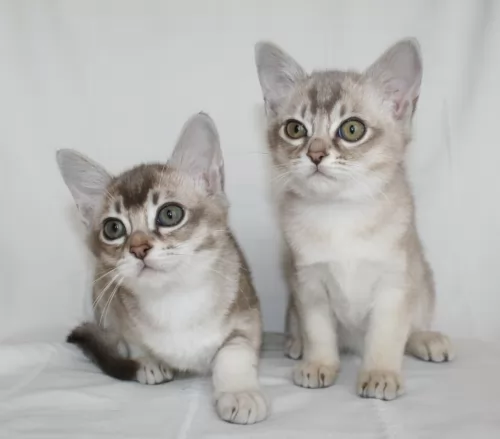 The Asian Semi-longhair is a robust cat, not prone to lots of health issues and he can reach up to 15 years of age.
The Asian Semi-longhair is a robust cat, not prone to lots of health issues and he can reach up to 15 years of age.
It doesn’t have any particular breed-specific diseases, but as with any cat, you want to be looking out for heart and periodontal diseases.
Also, hypokalaemic polymyopathy is a condition that results in muscle weakness and pain in your cat. The cause is low potassium and your pet's entire body can have muscle weakness.
Some other symptoms include being stiff, slow walking and an actual reluctance to walk. Some of the common causes of this illness include chronic kidney disease and poor diet.
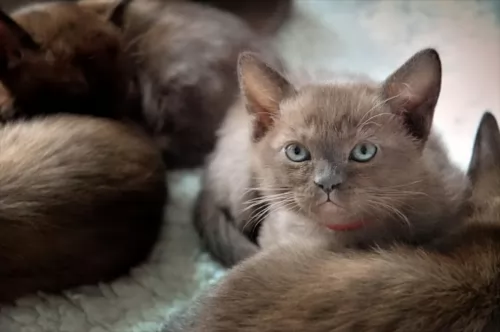 These cats are a healthy breed and if you take good care of your Burmese he can live to up to 13, 14 or 15 years of age.
These cats are a healthy breed and if you take good care of your Burmese he can live to up to 13, 14 or 15 years of age.
But you have to be aware of diabetes mellitus as well as something known as hypokalaemic polymyopathy – muscle weakness because of low blood potassium levels.
You’ve also got to look out for obesity as these are sturdy, stocky cats and overeating can lead to obesity and a host of health issues such as painful joints and diabetes.
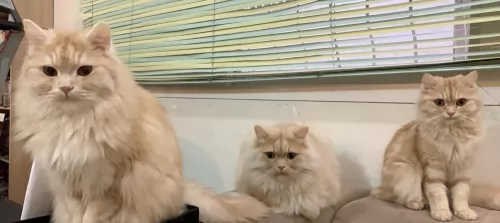 Your Asian Semi-Longhair will require regular deworming.
Your Asian Semi-Longhair will require regular deworming.
Keep your cat’s vaccines up to date.
The Asian Semi-longhair has moderate to long hair, and it’s a cat that sheds quite a bit so use a soft brush to brush the coat gently twice a week.
Have your cat spayed or neutered as this can prevent unwanted kittens. Not only this, doing this for your cat can be beneficial for your cat and bring out better characteristics in them. They no longer want to roam and mark territory. In the female cat it's the removal of the cat’s ovaries and uterus, and with the male cat, neutering is the removal of the cat’s testicles.
After this op, your vet will explain to you how to look after your recovering pet.
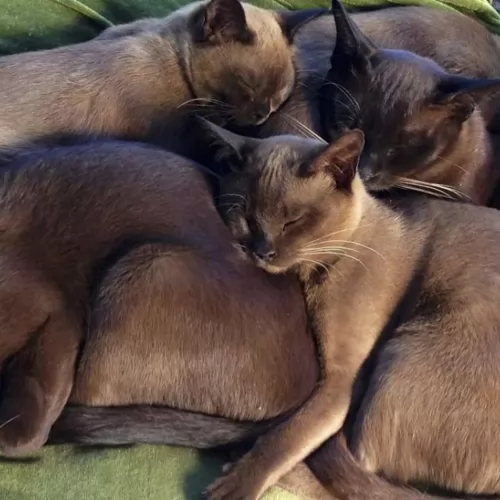 Burmese cats are naturally good climbers and you will need to provide these cats with some kind of climbing tree or something else where they can climb and perch.
Burmese cats are naturally good climbers and you will need to provide these cats with some kind of climbing tree or something else where they can climb and perch.
While adult Burmese cats tend to be fairly placid cats, they still love to play and love the interaction between themselves and their humans. As he gets older, don’t forget to keep up a regular playtime with him.
Shedding is minimal with the Burmese cat and weekly brushing will be a good bonding session and also keep your Burmese cat’s coat healthy and shiny by removing dust and loose hair.
Your fur child requires the best – a balanced cat food packed with protein to support him in all his activities and to ensure he maintains a good weight.
There are many excellent commercially manufactured cat foods on the market so learn to understand the ingredients and what nutrients are required.
Certainly, your Burmese kitten will require a complete and balanced kitten food with all the right nutrients to ensure good bone and coat growth. Then it is time to choose a kitten food which will later change to adult food as your kitten matures.
There are excellent cat foods for every stage and season of your cat’s life and from top brands – people who know the needs of cats.